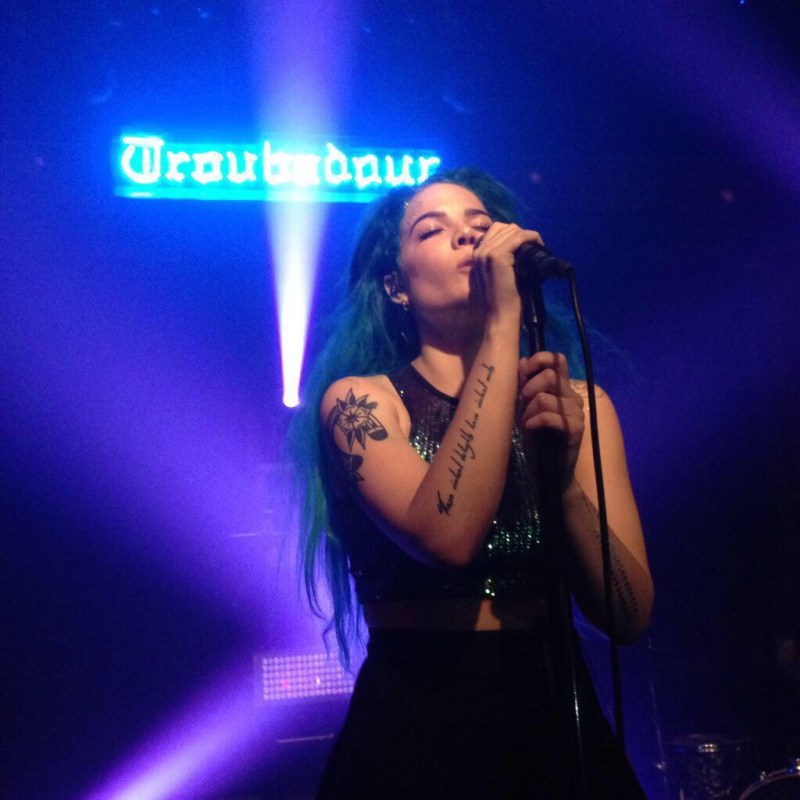She’s disillusioned, and ‘Badlands’ says we should be, too. In her promising debut, Halsey (born Ashley Frangipane) navigates dynamics of power and sexuality in a sonic dystopia that looks eerily like modern society. Over cynical alt-pop instrumentals, she plays the embattled anti-hero, an experienced warrior taking on all the institutions holding her down.

Our artist’s stage name derives from her New York upbringing: Her hometown, Brooklyn, includes the “Halsey” Street which also serves as an anagram of her first name. Her troubled financial background led to her first pre-fame tour and performing to make a living.
And though ‘Badlands’ avoids explicit autobiography, Halsey’s identity as a bisexual, biracial and bipolar woman is its constant inspiration. At 21, Halsey owns a tired worldliness built from struggle, and on ‘Badlands,’ it’s immersive.
In this vein, Halsey strives to be the voice of an anxious and diverse generation — sometimes too much. The opening three songs too readily sacrifice strong storytelling for anthemic resonance.
Though a person of her various identities is understandably antiestablishment, “Castle” feels a bit on-the-nose. And the topical “New Americana” is a clear play for radio-ready greatness at the expense of the insight that comes later in the album with Halsey’s lived experience and the daring character of her instrumental introductions. “Hold Me Down” has its moments, including some stinging indictments of patriarchy (“Sold my soul to a three piece, and he told me I was holy”), but ultimately works only as an introduction to ‘Badlands’’ more personal material.
After these tracks, the album somewhat abruptly transitions from Lorde-type generational angst into a more comfortable niche and largely stays there, merging the personal and the universal into a single narrative. “Coming Down” and “Drive” particularly demonstrate Halsey’s potential in this respect.
“I’ve got a lover, a love like religion,” she croons on the former, an effort in iconoclasm and irreverence matched by “Young God,” which finds power and risk in young love and vulnerability. These songs are ‘Badlands’’ tour de force: messy, ironic chronicles of modern relationship, inextricable from both old institutions and new romantic rules. With impressive soundscapes and disaffected vocals, Halsey has a way of simultaneously sweeping us up in her moment (we’re all in the car on “Drive”) and placing us in broader society.
But ‘Badlands’ sometimes loses steam when it ventures too far from its core strengths. To her credit, Halsey’s departures pay off on “Control” and “Colors,” which provide surprisingly honest perspectives into mental health and demonstrate her artistic versatility. But “Haunting” and “Roman Holiday” contribute little to the album, and feel like placeholders after harder-hitting tracks. Similarly, even a catchy chorus can’t save “Ghost,” a disappointing finale which can’t sit still and misfires entirely with jarring rapped verses.
Instead, ‘Badlands’ succeeds when Halsey understands honest and contextualized self-reflection as her most powerful political and artistic tool, leaving progressive checklist-songs and filler tracks at the door. That’s when she’s most the voice she wants to be — everyone’s and her own, all at once.
Contact Joshua Seawell at jseawell ‘at’ stanford.edu.
